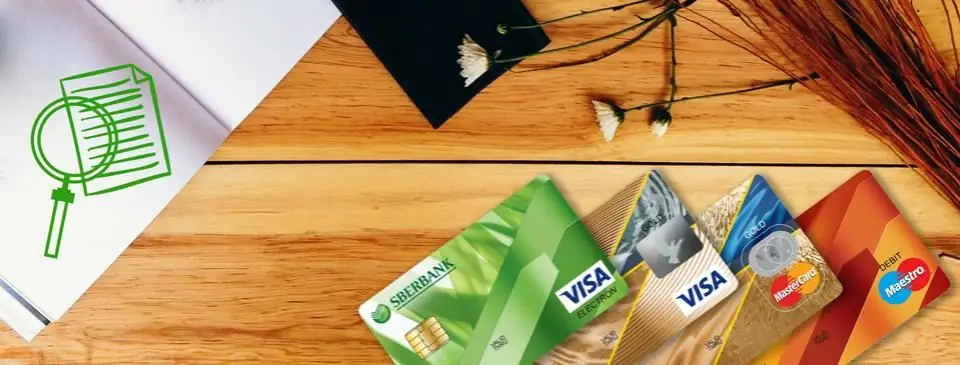2026 Author: Howard Calhoun | [email protected]. Last modified: 2025-01-24 13:10:27
Quite often citizens buy a car on credit. However, under the terms of the loan agreement, they do not have the right to sell it until the debt obligations are fully repaid. But unscrupulous persons have developed a whole scheme to circumvent this rule. They resell the car to people who have no idea that the car is encumbered. How to check a car for collateral in banks will be described in this article.
Restrictions for the owner
As mentioned above, for those who buy a car with a loan, there are certain restrictions. For example, a car is pledged to the bank when the sale and purchase agreement is still being drawn up. That is, even at the time of purchasing the vehicle, the future car owner no longer has the right to fully dispose of it. Or in another option, when a certain amount of money is required, and the bank is ready to issue it on the security of the car as a guarantee of return on investment. Naturally, the bankpicks up the registration certificate for the car and keeps it until the borrower pays the last payment.

In fact, the lack of a registration certificate is not a reason that prevents the vehicle from being resold. The car owner makes a copy of the title and can sell the car to another person without the above document. In addition, there is no single database of all pledged cars. It would seem that this problem could be solved if banks were more responsible for maintaining such a database. However, in practice it turns out that it does not matter to them who to take the car from in case of non-payment of the debt. Thus, in order not to become a victim of a fraudster, you need to know how to check a car for collateral in banks.
Main signs of a mortgaged car
Most of the signs that the car was bought on credit are indirect. Only by analyzing them in general, you can get a detailed picture of reality. Most often, inattentive or too gullible buyers become victims of scammers. After all, it is enough to know the following nuances so as not to purchase a dysfunctional vehicle:
- PTS duplicate. You can easily get it at the traffic police by writing an application for the loss of the old one. Many banks do not take the original vehicle passport at all, referring to the fact that it can be obtained without difficulty for a nominal fee.
- If less than three years have passed since the purchase of the car by the seller, and he wants to sell it. Typically, the term of a car loan does not exceedthis period.
- The seller does not have all the necessary documents confirming that he bought it for cash (receipt, sales contract).
- A record in the TCP that the vehicle was purchased under a commission agreement.
So, having decided to buy a new car, it is necessary to analyze the above signs. Having received an affirmative answer that she is burdened, it is better to find another option. But if all the signs indicate that it is "clean", then you can find additional information and ask how to check the car for a loan or bank collateral.

Recommendations when choosing a car
Of course, it is best to buy a car in a car dealership and without mileage. But not all citizens have this opportunity. Moreover, an attractive price, the absence of paperwork do their job, and buyers become the owners of the car as a pledge. It would be another matter if the majority of motorists were initially interested: is it possible to check a car for a deposit when buying it - and did not find unpleasant "surprises" after the transaction.
Thus, if it is not possible to buy a vehicle in a car dealership, then you should pay attention to the perfect condition of the car and its low cost. This indicates that for some reason they want to get rid of the car. And it may even be stolen, which will cause even more problems than the balance of the outstanding debt from the creditor.

How to check a car for collateral in banks
If considered from a theoretical point of view, then you can contact all existing banks and ask them for information on the presence of a pledge of a particular car. Naturally, in practice this is simply not feasible. No bank will give such information, because it has no right to do so. Everything about clients is confidential.
If you're lucky, you can find cars in the database of banks and dealerships. But, unfortunately, not all credit organizations send their reports there. That is why information of this kind is limited and is not a reliable confirmation of the fact of encumbrance. So how to check a car, car, car for bail? There is an answer to this question. For example, you can look at the Casco insurance policy. If any bank is indicated in the "beneficiary" column, then this is evidence that the car was purchased on credit. Banks, trying to protect themselves from all sides, oblige their borrowers to insure vehicles, so that in the event of an insured event, the company will cover all the damage to them. Thus, even the presence of a "Casco" policy from the seller should already alert. Due to the high cost of this insurance, it is rarely purchased by ordinary drivers.
You can contact the credit bureau and make a request to the seller. If there is a record of a car loan in his credit payment history, then this will indicate that it is better to look for another purchase option.

Who can become a victim of scammers - feedback from victims
In order to enjoy driving a purchased car and not worry about bailiffs coming, you need to carefully study all the documents and make some inquiries. The most popular ways to check a car for collateral in a bank were described above. But even the absence of all of the above signs cannot be a guarantee that the machine is not burdened. And, unfortunately, quite often citizens become victims of dishonest sellers.
For example, you can often see and hear reviews of drivers who purchased a car that was pledged not from a bank, but from a private person, a microcredit organization or a pawnshop. At that time, buyers had no way to check the status of the car at all.

What to do if the purchased car is in pledge?
If, nevertheless, such an unpleasant incident happened to the buyer and it turned out that now his car is encumbered by a credit institution, then there is a way out of this situation. You can sue and demand damages from an unscrupulous seller. However, most often such sellers try to get rid of the car precisely because of the inability to pay the debt. That is why the court, having decided to recover the debt from the previous owner, can achieve the maximum recognition of it as insolvent, that is, bankrupt. In that case, fromthis does not make it easier for either the bank or the injured party. The latter will repay the debt for the previous owner, if he has such an opportunity, and the bank may completely lose its profits. Thus, knowing how to check the car for bail, you can avoid such unpleasant moments.

Buyer Rights
In order not to become a victim of an unscrupulous seller, you should know your rights. For example, the court often leaves ownership to the new owner. But in order to achieve this, you will need to collect more than one document and certificate. If it is not possible to prove the fact that you did not know about the encumbrance of the purchase, then by decision of the court the car may be seized. But in this case, the injured party has every right to demand reimbursement of the money spent on the car. In any case, you should know not only how to check a car for collateral in banks, but also your rights.

Helpful tips
In addition to the fact that you can independently check the "status" of the car, there are also special organizations. Such companies promise to give a 100% guarantee and assure that they know how to check if the car is in collateral. In fact, you should not believe such promises, because even the traffic police does not keep records of cars that are encumbered.
If the aggrieved buyer decides to dispose of the new property in the same way as the previous owner, then he must understand all subsequent liability.
Recommended:
How to check an account with Sberbank: hotline, Internet, SMS and other ways to check an account and bonuses

Cash is slowly but surely becoming a thing of the past, becoming part of history. Today, payments in almost all spheres of life are made using bank cards. The benefits of such changes are clear. One of the most important is a convenient service that allows you to receive information about the status of your account at any time. Let's consider this possibility in more detail on the example of the largest participant in the Russian banking system. So, how to check an account with Sberbank?
How to check the developer: methods and recommendations

When purchasing housing at the construction stage, you need to be convinced a thousand times of the reliability of the developer. How to check the company and understand if it can be trusted? You will learn how to check the developer, what information and documents you need to pay close attention to from the article
How to check a Sberbank card: by number, phone, SMS and other ways to check the balance and the number of bonuses on the card

More than 80% of Sberbank customers have plastic cards. It is easy and convenient to use them, besides, they allow you to save time when performing transactions. To always be aware of the amount of funds on a credit card, you need to know how to check a Sberbank card
Which banks are reliable? Reliability rating of banks

Constant changes in the political and financial sphere of our country have led to the fact that residents do not risk investing their money in bank deposits. The same situation develops in relation to the credit programs of these financial institutions. But if a citizen wants to use the services of a bank, he is recommended to first study the rating of reliability and stability of banks and the conditions they offer
Showcase of VTB collateral. The principle of the sale of collateral

Showcase of pledged property or VZI VTB is a special bank program that gives people the opportunity to purchase property on special terms. With the help of this program, you can purchase lots from the showcase of such expensive items as cars, apartments, etc. at low prices. Almost every bank has similar programs

